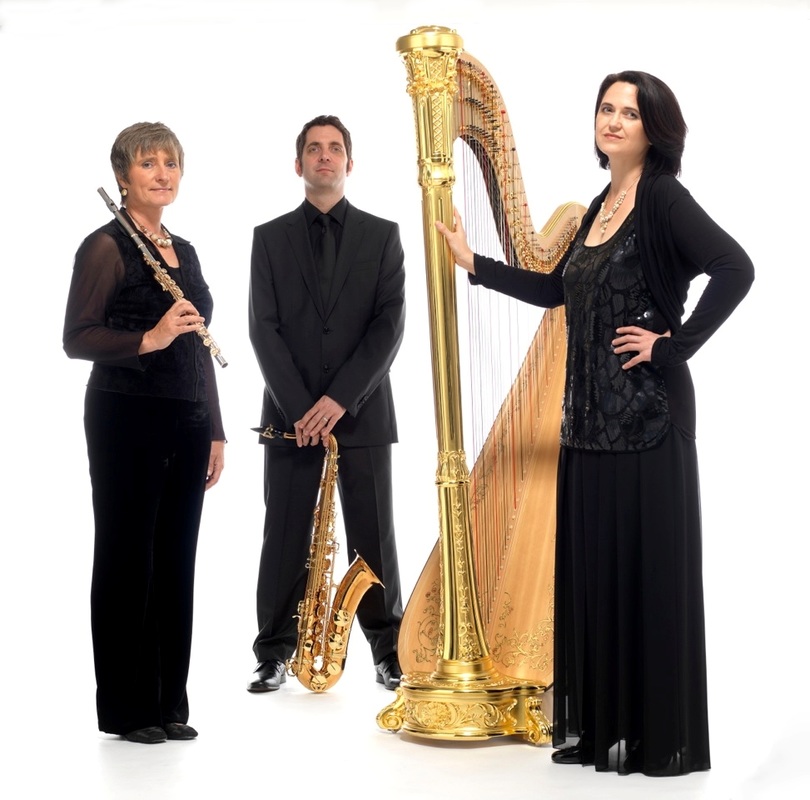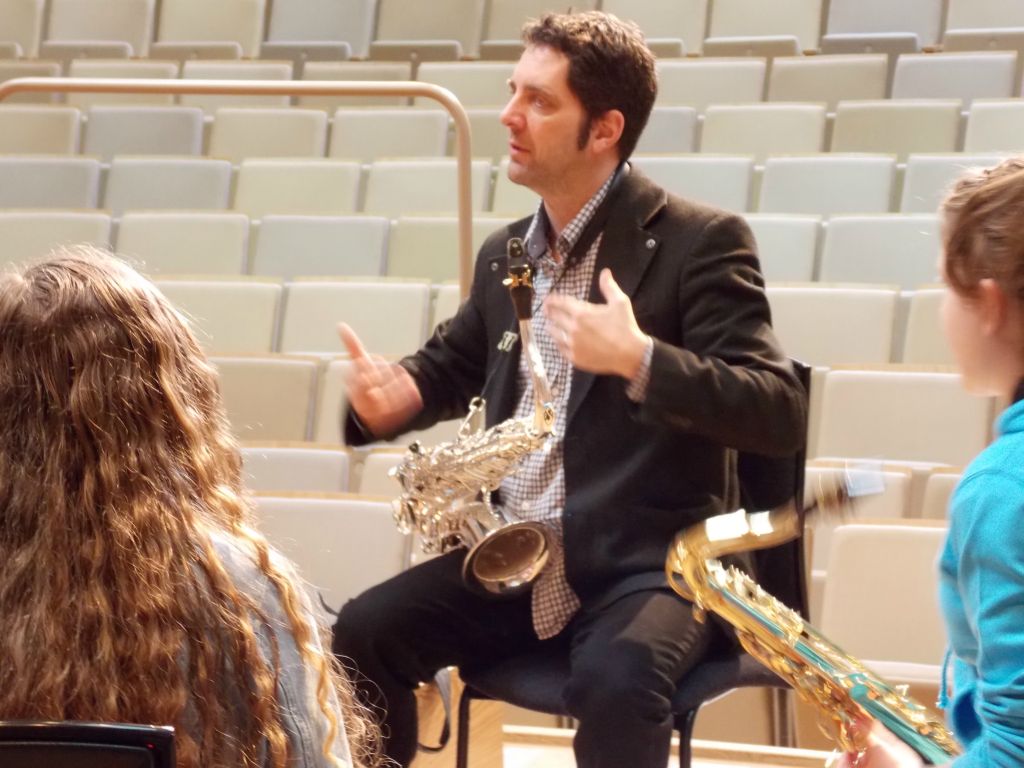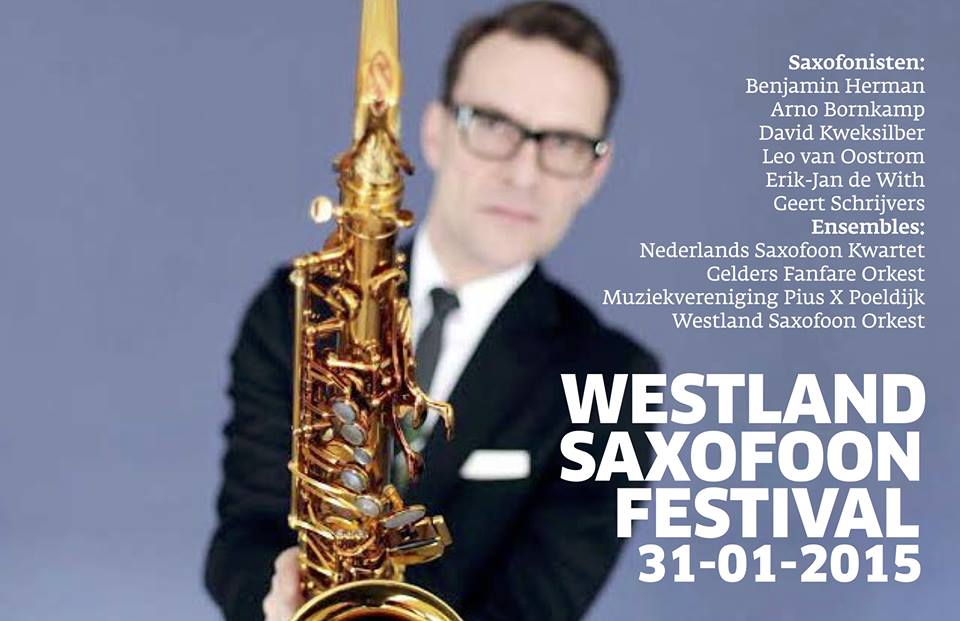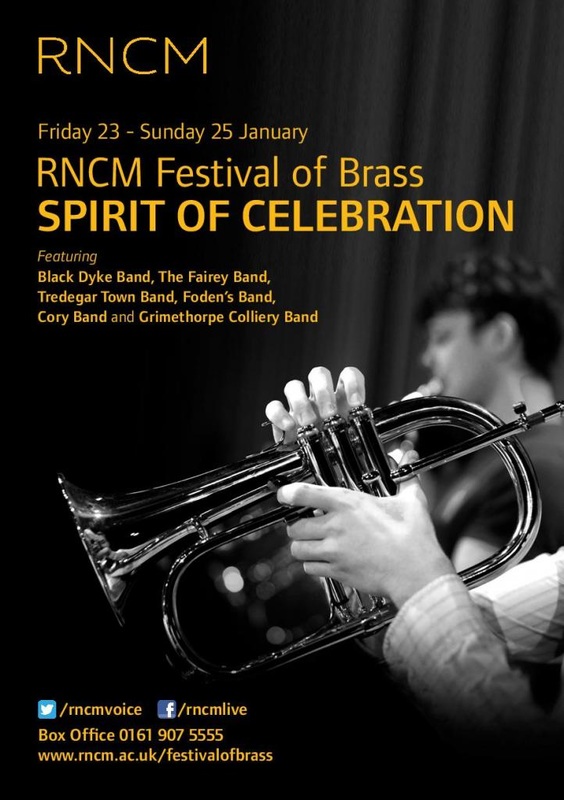|
Caliente, Andy Scott’s trio comprising flute, harp and tenor saxophone, will be giving concerts in the South East and North West this spring.
Caliente will give a recital in Berkshire on Sunday 18 January, linked to a workshop for Berkshire Maestros. There will also be performances for Rochdale Music Society and Sandbach Concert Series on 21 and 25 March respectively. The concerts will feature a range of engaging, stimulating and accessible music rooted in classical music with jazz influences, including works bv Milhaud, Ibert, Fauré, Piazzolla, Telemann and Chick Corea as well as original works and arrangements by Andy Scott. Caliente comprises flautist Clare Soutworth, harpist Lauren Scott and Andy Scott on tenor saxophone. Exploring the dynamic between composer and performer, Caliente performs music specially written by Andy Scott, alongside works by Milhaud, Ibert, Prokofiev and Fauré. Three consummate performers and experienced educators present an engaging, stimulating and accessible event, rooted in classical music with jazz influences. Click to visit the Caliente website Click to visit the Berkshire Maestros website Click to visit the Rochdale Music Society website Click to visit the Sandbach Concert Series website
0 Comments
As a freelance musician over the years, quite incredibly, I have been asked the question 'what's your proper job?'. How insulting, thoughtless and quite frankly ignorant.
I am aware that this type of comment is aimed at a lot of younger musicians, and rather worryingly, I am aware that a lot of young music students are pressurised by family and friends as they consider their options post study with questions such as this. Well, let's briefly look at the people asking these questions. Their heart is probably in the right place, but they probably don't have a connection with music, in that they don't understand it, they can't really feel a particular emotional connection with it, or maybe because they can strum three chords on a guitar they think of music as a hobby and not a 'proper job'? Or maybe it's because they worry for the young musician, thinking that they will be poor for the rest of their lives? If you have no knowledge, understanding or appreciation of the subject that you are enquiring about, maybe you should research it and then choose your words more carefully? Please note that I feel no need to justify the music business here, and the incredible diversity of music, I'm so lucky to be a part of it, and if you display your ignorance by asking such an inane question, then I'm not about to waste my time on you. I find that music is a world where imagination, creativity, dedication and skill prevail, one that is a lifelong journey and isn't a 'job', one where there is a deep emotional connection, and financial matters become secondary (still important purely from a practical level, but definitely secondary). Music teaches us how to communicate. We learn how to work with people, how to be tolerant, how to encourage, and we question ourselves, have battles in our minds with ourselves, want to give up, and then work hard and battle through. The hard work and desire pays off as we learn and listen more, listening skills that are on a new level, resulting in new levels of appreciation, opening new doors in our minds that are exciting and keep us spiritually alive (and I'm not a religious person). Imagine a person in a suit and tie, who works in an office 9 to 5, Monday to Friday with the same people, someone who only travels when he or she has an annual holiday, someone who has the same monthly salary, and who will do the same job until he or she retires and takes their pension, and then dies. Now I have a respect for those people, each to their own, and I understand about the need to have financial security. But I don't want to be like you, I don't want that life, but I understand why you want to. So please, instead of bringing your insecurities and stress into the lives of young people, students, musicians that have a passion for something, who are thinking and are alive with energy and ideas, who work hard, and who thrive on not knowing what is just around the corner, why not think who has the 'proper job'? I have a job for a lifetime, that means until the day that I die, not when someone decides that I retire, because I have no choice, music is my life, and something that I couldn't live without. I strive to do my best at it, and I am in awe of musicians that inspire me. I hope that I may be able to share musical ideas with people of any age and experience that are like-minded. And on that note, I will leave my laptop and go and do some practice! Have the faith any of you young musicians that are embarking in this glorious world of music, it's bloody hard work, and if you want it badly enough then music will become your life, sounds good to me. Several works by Andy Scott will feature in the Westland Saxofoon Festival in The Netherlands this month.
Arno Bornkamp and Erik-Jan de With will perform Andy Scott's award winning double saxophone concerto Dark Rain in the evening gala concert at the Festival with the Gelders Fanfare Orkest directed by Erik van de Kolk. Dark Rain, originally scored for wind orchestra, was arranged for fanfare orchestra by Jos Dobbelstein. The concert, entitled Tribute to Adolphe Sax, will take place on Saturday 31 January at 8.00pm. Earlier in the day, the Westland Saxofoon Orkest will perform Andy Scott's SaxAssault charts Sax of Gold and Lip Service, featuring Benjamin Herman and David Kweksilber as soloists, in an afternoon concert at 2.00pm. Lip Service will receive a further performance by the same musicians in a free twilight concert at 4.45pm. The Westland Saxofoon Festival in Naaldwijk marks the 200th anniversary of Sax’ birth with a day of performances and workshops by leading saxophone soloists and ensembles. The daytime events will take place at Maesemunde, Koningin Julianaweg 158, 2691 GH 's Gravenzande, and the evening gala concert at De Voorhof, Dijkstraat 88 in Honselersdijk. Andy Scott’s works are published by Astute Music Click to visit the Westland Saxofoon Festival website 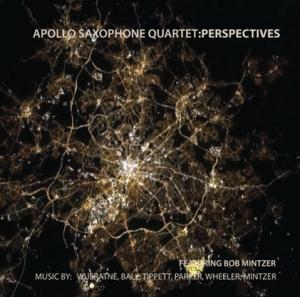 September 1985, it seems like a lifetime ago! This was when four first year students at the Royal Northern College of Music were thrown together in a practice room on a Friday afternoon and told that we were going to have weekly rehearsals as a saxophone quartet. Tim Redpath played soprano sax, Rob Buckland alto sax, myself tenor sax and Jon Rebbeck baritone sax. What followed over the next 12 or so years was amazing, and a privilege to be a part of; we loved working together and for the best part of four years at the RNCM rehearsed for 4 to 6 hours a day. We entered competitions, and won the Ensemble Prize at the Royal Over Seas League, were the inaugural winners of the Tunnell Trust and then (at the second attempt) won the Tokyo Chamber Music Prize, which in itself resulted in eight tours of Japan over the following ten years! I'm not a great believer in music competitions, however they do create opportunities for young musicians, and are an endorsement. In the 1990s the ASQ received countless invitations to perform at Festivals and music societies, travelling the world, and recording its debut CD 'First & Foremost' on the Decca/Argo label at the famous Abbey Road Studio 2! I remember us staying at the Abbey Road Studios guest flat right next door to the studios, thinking that we were rock and roll stars, being met by an enormous fridge that was stacked full of beer, the problem was that we were exhausted from 12 hour days of intensive recording, and barely touched a drop before falling asleep! Inevitably there are personnel changes with a music group, and after about 12 years, Jon decided to pursue his other love, and trained and qualified as a pilot! A change of personnel is always difficult, for many reasons, and also positive. Each person brings something individual to a group, and Will Gregory did exactly that, joining the ASQ on baritone sax. His first concert was when we played at the Vale of Glamorgan Festival, and it was a heavy gig! Broadcast on BBC Radio 3, the programme featured amongst others; Stub by Graham Fitkin & Facing Death by Louis Andriessen, with the composers present! It was hot work, and I looked at Will during Stub and noticed that his (long) hair had fallen forward and over his glasses, meaning at times that he couldn't see a thing! Fortunately Will survived this baptism of fire, and we had a great few years with him in the Apollo before he became busy with his new writing partner, Alison Goldfrapp, and it was impossible for him to keep both commitments, Apollo & Goldfrapp. David Roach brought a new perspective to the ASQ, again joining on the baritone sax chair! Dave bought himself a new Selmer Paris bari sax and came up to the North West to rehearse for two days at a time from his London base, a big sacrifice as the student days had well and truly gone for us all, and time was becoming more precious for everyone, with families and the reality of earning a living as freelance musicians. Dave would get into real detail in rehearsals, which was good for the group, as we continued to commission, record and give world premieres of now, nearly one hundred works!! The baritone sax chair curse struck again, and we welcomed Carl Raven in the Apollo fold! Shortly afterwards our soprano sax player, since the beginning, Tim Redpath, unfortunately had to leave the group through ill health (I'm delighted to say that Tim is in very good health these days, and playing as well as ever!). This was a massive personnel change as Tim was like a brother to Rob & myself, and of course the soprano sax chair is crucial with the added responsibility of leading/directing in concert a lot of the time. So, Rob moved to soprano sax, Carl to alto sax (I hope that you're following this? :-), and we approached Jim Fieldhouse to play baritone sax. Our first concert with this revised line up was in Groningen in Holland. A triple bill concert with the Amstel & Aurelia Saxophone Quartets, two fantastic groups, so no pressure then! I mentioned to Arno Bornkamp at breakfast in our hotel the day after the concert that this was the first concert with the new line up. He seemed surprised, which was a good sign, and so this line up of Rob, Carl, Jim & myself continues. Inevitably, the gung-ho, confident, student early days competition-winning music ensemble develops into something else over the years (if it continues to operate at all?). It isn't practical to undertake regular unpaid rehearsals, and becomes more challenging to organise rehearsals and concerts as individually everyone becomes more established and in demand. In the case of the ASQ, we operated on a more project focused basis from about 2000 onwards, and continue to do so. It's not often that I reflect on any aspect of my musical life, I don't like to, I don't like listening to recordings of myself in any setting, I prefer to listen to others, however the Apollo Saxophone Quartet and the time that I've spent in it to date is very special, hence this blog. A group of musicians who spend a lot of time together, and who operate as a collective, no matter whether this is jazz, pop, classical, contemporary, world music, learn to grow up together both personally and musically. You discuss everything, and are not 'told' things as you might experience in lessons or working with a conductor or musical director (nothing wrong with this by the way), and as a result have to really think things through. It's pretty amazing when you're on stage playing a piece of music with your friends/musical colleagues, that you have commissioned (i.e helped create) and when there is a high level of musical trust, knowing that you can play a certain phrase differently if you like and that others will be listening and responding, keeping it musically fresh and alert via interpretation. It's also good to know that as a member of the ASQ that I've played a small part in expanding the quality saxophone quartet repertoire worldwide. It's fantastic to see and hear sax quartets in many countries perform and record works that were commissioned by the ASQ, as long as they remember how these pieces of music that they're playing came to be. For example, if you ever play 'Songs for Tony' by Michael Nyman you should know that the four of us in the Apollo at that point in time decided to give our concert fees to pay the commission fee, and that meant struggling to pay rent for a good few months! This blog is turning out to be a little longer than anticipated, so if you're still here I'll wind it up by saying that the reason that I'm thinking about times with the ASQ is that in September 2015 the group will be celebrating, yes celebrating, 30 years of music-making, commissioning, performing and recording worldwide. No small achievement, and it's been a pleasure working with Tim, Jon, Dave, Will, and with the current line up of Rob, Carl & Jim! The RNCM in the student years was particularly supportive, and John Harle was also a great source of inspiration and guidance. We recorded and released a new CD in 2014, to tie in with a tour of South Africa, entitled 'Perspectives'. It felt as if we had a number of wonderful commissions that hadn't made it to CD, including 'Serenade for Seikilos' by Michael Ball (the first ASQ commission!), 'Just Four Men' by the great (and sadly late) Kenny Wheeler, 'Cartoons' by Eddie Parker, 'Visaya' by our good friend Dinuk Wijeratne, a wonderful (best part of 20 minute) quartet from Keith Tippett and a sax quintet from Bob Mintzer, with the man himself guesting with the Apollo! In 2015 the Apollo will present a snapshot of our work at Sax Open, the World Saxophone Congress in Strasbourg in July, plus give the world premieres of newly-commissioned works from August onwards. If you are interested in buying the 'Perspectives' CD please don't go to itunes, amazon, spotify, as the Apollo has decided to sell exclusively via our website; http://www.apollosaxophonequartet.com/ 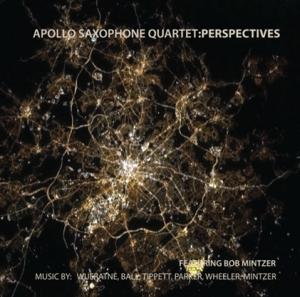 September 1985, it seems like a lifetime ago! This was when four first year students at the Royal Northern College of Music were thrown together in a practice room on a Friday afternoon and told that we were going to have weekly rehearsals as a saxophone quartet. Tim Redpath played soprano sax, Rob Buckland alto sax, myself tenor sax and Jon Rebbeck baritone sax. What followed over the next 12 or so years was amazing, and a privilege to be a part of; we loved working together and for the best part of four years at the RNCM rehearsed for 4 to 6 hours a day. We entered competitions, and won the Ensemble Prize at the Royal Over Seas League, were the inaugural winners of the Tunnell Trust and then (at the second attempt) won the Tokyo Chamber Music Prize, which in itself resulted in eight tours of Japan over the following ten years! I'm not a great believer in music competitions, however they do create opportunities for young musicians, and are an endorsement. In the 1990s the ASQ received countless invitations to perform at Festivals and music societies, travelling the world, and recording its debut CD 'First & Foremost' on the Decca/Argo label at the famous Abbey Road Studio 2! I remember us staying at the Abbey Road Studios guest flat right next door to the studios, thinking that we were rock and roll stars, being met by an enormous fridge that was stacked full of beer, the problem was that we were exhausted from 12 hour days of intensive recording, and barely touched a drop before falling asleep! Inevitably there are personnel changes with a music group, and after about 12 years, Jon decided to pursue his other love, and trained and qualified as a pilot! A change of personnel is always difficult, for many reasons, and also positive. Each person brings something individual to a group, and Will Gregory did exactly that, joining the ASQ on baritone sax. His first concert was when we played at the Vale of Glamorgan Festival, and it was a heavy gig! Broadcast on BBC Radio 3, the programme featured amongst others; Stub by Graham Fitkin & Facing Death by Louis Andriessen, with the composers present! It was hot work, and I looked at Will during Stub and noticed that his (long) hair had fallen forward and over his glasses, meaning at times that he couldn't see a thing! Fortunately Will survived this baptism of fire, and we had a great few years with him in the Apollo before he became busy with his new writing partner, Alison Goldfrapp, and it was impossible for him to keep both commitments, Apollo & Goldfrapp. David Roach brought a new perspective to the ASQ, again joining on the baritone sax chair! Dave bought himself a new Selmer Paris bari sax and came up to the North West to rehearse for two days at a time from his London base, a big sacrifice as the student days had well and truly gone for us all, and time was becoming more precious for everyone, with families and the reality of earning a living as freelance musicians. Dave would get into real detail in rehearsals, which was good for the group, as we continued to commission, record and give world premieres of now, nearly one hundred works!! The baritone sax chair curse struck again, and we welcomed Carl Raven in the Apollo fold! Shortly afterwards our soprano sax player, since the beginning, Tim Redpath, unfortunately had to leave the group through ill health (I'm delighted to say that Tim is in very good health these days, and playing as well as ever!). This was a massive personnel change as Tim was like a brother to Rob & myself, and of course the soprano sax chair is crucial with the added responsibility of leading/directing in concert a lot of the time. So, Rob moved to soprano sax, Carl to alto sax (I hope that you're following this? :-), and we approached Jim Fieldhouse to play baritone sax. Our first concert with this revised line up was in Groningen in Holland. A triple bill concert with the Amstel & Aurelia Saxophone Quartets, two fantastic groups, so no pressure then! I mentioned to Arno Bornkamp at breakfast in our hotel the day after the concert that this was the first concert with the new line up. He seemed surprised, which was a good sign, and so this line up of Rob, Carl, Jim & myself continues. Inevitably, the gung-ho, confident, student early days competition-winning music ensemble develops into something else over the years (if it continues to operate at all?). It isn't practical to undertake regular unpaid rehearsals, and becomes more challenging to organise rehearsals and concerts as individually everyone becomes more established and in demand. In the case of the ASQ, we operated on a more project focused basis from about 2000 onwards, and continue to do so. It's not often that I reflect on any aspect of my musical life, I don't like to, I don't like listening to recordings of myself in any setting, I prefer to listen to others, however the Apollo Saxophone Quartet and the time that I've spent in it to date is very special, hence this blog. A group of musicians who spend a lot of time together, and who operate as a collective, no matter whether this is jazz, pop, classical, contemporary, world music, learn to grow up together both personally and musically. You discuss everything, and are not 'told' things as you might experience in lessons or working with a conductor or musical director (nothing wrong with this by the way), and as a result have to really think things through. It's pretty amazing when you're on stage playing a piece of music with your friends/musical colleagues, that you have commissioned (i.e helped create) and when there is a high level of musical trust, knowing that you can play a certain phrase differently if you like and that others will be listening and responding, keeping it musically fresh and alert via interpretation. It's also good to know that as a member of the ASQ that I've played a small part in expanding the quality saxophone quartet repertoire worldwide. It's fantastic to see and hear sax quartets in many countries perform and record works that were commissioned by the ASQ, as long as they remember how these pieces of music that they're playing came to be. For example, if you ever play 'Songs for Tony' by Michael Nyman you should know that the four of us in the Apollo at that point in time decided to give our concert fees to pay the commission fee, and that meant struggling to pay rent for a good few months! This blog is turning out to be a little longer than anticipated, so if you're still here I'll wind it up by saying that the reason that I'm thinking about times with the ASQ is that in September 2015 the group will be celebrating, yes celebrating, 30 years of music-making, commissioning, performing and recording worldwide. No small achievement, and it's been a pleasure working with Tim, Jon, Dave, Will, and with the current line up of Rob, Carl & Jim! The RNCM in the student years was particularly supportive, and John Harle was also a great source of inspiration and guidance. We recorded and released a new CD in 2014, to tie in with a tour of South Africa, entitled 'Perspectives'. It felt as if we had a number of wonderful commissions that hadn't made it to CD, including 'Serenade for Seikilos' by Michael Ball (the first ASQ commission!), 'Just Four Men' by the great (and sadly late) Kenny Wheeler, 'Cartoons' by Eddie Parker, 'Visaya' by our good friend Dinuk Wijeratne, a wonderful (best part of 20 minute) quartet from Keith Tippett and a sax quintet from Bob Mintzer, with the man himself guesting with the Apollo! In 2015 the Apollo will present a snapshot of our work at Sax Open, the World Saxophone Congress in Strasbourg in July, plus give the world premieres of newly-commissioned works from August onwards. If you are interested in buying the 'Perspectives' CD please don't go to itunes, amazon, spotify, as the Apollo has decided to sell exclusively via our website; http://www.apollosaxophonequartet.com/ Foden’s Band will play a work by their composer in residence Andy Scott at the RNCM Festival of Brass this month.
The piece, Forgotten Place, will feature in Foden’s Band’s programme in the main evening concert of the Festival on Saturday 24 January. Forgotten Place is the first part of The Dirty River, commissioned by the Armagh Old Boys’ Silver Band, which was inspired by Armagh’s natural watercourse, also once known as the Scotch Street River. Forgotten Place can be heard on Spirit of Foden’s, the band’s second CD of works by Andy Scott. Reviewing the CD for the 4 Bars Rest website, Steve Jack commented on the “sepia tinted memory landscape of ‘Forgotten Place’ infused with a stimulating evocativeness”. The RNCM Festival of Brass, directed by Paul Hindmarsh, is an annual event featuring some of the UK’s finest brass bands and international soloists. Under the title Spirit of Celebration, the 2015 Festival, which runs from Friday 23 to Sunday 25 January, will pay tribute to composers who have made a significant contribution to the brass band medium. Foden’s Band will also play a composition by former RNCM principal Edward Gregson and several works by their principal guest conductor Bramwell Tovey. Andy Scott’s works are published by Astute Music Click to visit the RNCM website for more details about the Festival of Brass |
news items and blog posts by Andy ScottArchives
May 2023
|
